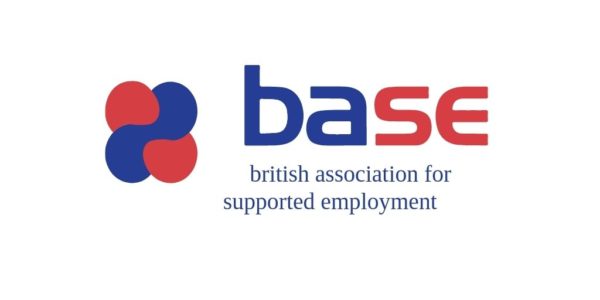“At the age of six I wanted to be a cook. At seven I wanted to be Napoleon. And my ambition has been growing steadily ever since.” – Salvador Dali
There are 1.19 million job vacancies in the UK and yet according to the latest figures from Youth Employment UK statistics there are ¾ million young people not in employment, education, or training. How can such a disparity exist?
Approximately 18, 000 employers have signed up to the Government’s Disability Confident scheme which is intended to support employers to make the most of disabled talent. Despite this only one in twenty of working age adults, with a learning disability (that is 4.8%) are in paid employment in England. Why aren’t more disabled and neurodivergent people working and reaping the multi-faceted benefits of having a career, like everyone else?
BASE believes that the main barrier for employers is understanding how to make the practical step from Disability Confident in principle to Disability Confident in Action. This includes how to manage removing those barriers for the total lifecycle of employee’s career and knowing where to go to for support to make those changes whether that’s business to business or specialist support.
Implementing reasonable adjustments, is one of the most informal ways to remove barriers for disabled and neurodivergent in the workplace.
What is a reasonable adjustment?
For many employers, simply the words “reasonable adjustments” can be scary. What exactly is classed as “reasonable”? The main thing to remember, it all starts with a conversation, to ensure that everyone can flourish. Reasonable adjustments are simply a way of removing the barriers, that non-disabled people don’t face when trying to access or develop a career.
Starting with the recruitment process itself, considering what strengths you really need to identify and enable people to showcase these, through working interviews, removing the need to present {unless it is part of the role}, enabling people to have questions beforehand are all examples of adjustments that can be explored. Many reasonable adjustments are completely free, for example offering flexible working hours, and the average cost is £75.
There are increasing amounts of free technology which can support people within the workplace, this includes tech that is available on everyone phones/desktops and more specialist tech. Microsoft Accessibility Fundamentals, for example, offers free online training on the tools which are already built into their products in addition to how to create accessible content.
In cases where addressing other barriers to employment requires a greater financial investment, Access to Work is available. This Government funding can be used to pay for specialist equipment, specialist support or travel support costs that individuals may need.
Where to start with reasonable adjustments?
The great news is that reasonable adjustments can be implemented even before employing a young disabled/neurodivergent person. Often measures such as adjusting recruitment practices, for example, creating an easy read job description and application which allows the young person to demonstrate what they can do using terminology they can respond to.
Another straightforward reasonable adjustment that employers can make to the recruitment process is to share the interview questions with the job seeker before the interview. This means that the focus of the job interview is about testing the job seekers knowledge rather than how they ‘perform’ in an interview.
Many employers are unaware that there is free help available to consider and implement reasonable adjustments, from Supported Employment agencies across the UK. They can support employers with disability awareness training, setting up working interviews or work trials as well as job-shaping to ensure that young people are being supported to achieve their best and the relevant equality legislation is being followed.
BASE and its strategic partner Rangam are keen to support employers to connect with supported employment agencies locally and nationally. The more employers who embrace inclusive recruitment, the better chance there is of young people from that hidden talent pool being able to be ambitious about their future employment. More importantly, reasonable adjustments not only benefit people with hidden disabilities, learning disabilities and autism but also make the recruitment process more accessible to other underrepresented groups in the workforce.
Regardless of whether you are focusing on early careers planning, work retention or total full workforce planning, there are youth-focused models ( eg Supported Internships), with the Supported Employment model at the heart that will help you to become disability confident in action.
Want to know more?
If you would like to explore ways of moving from Disability Confident in principle to Disability Confident in Action please speak to Laura Davis BASE, CEO
Further resources
Email laura.davis@base-uk.org
Accessibility fundamentals – Training | Microsoft Learn
Apprenticeship Diversity Champions network 2022-23
Inclusive Recruitment | British Association for Supported Employment (base-uk.org)










